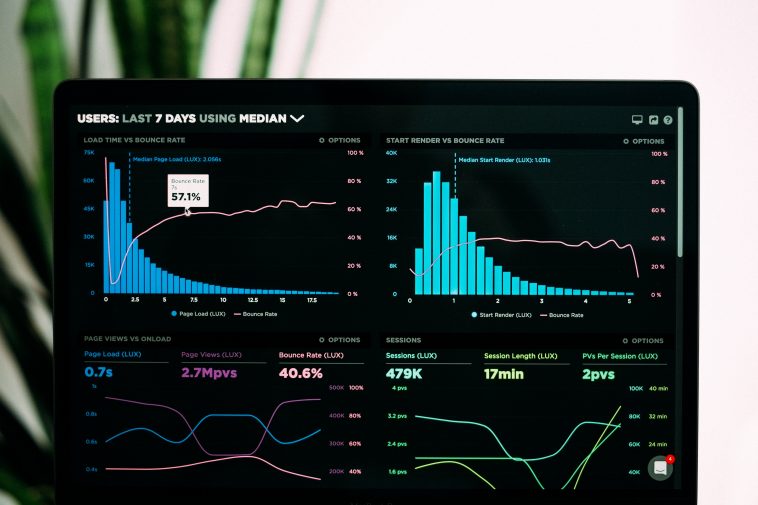Stears, a Nigerian data and intelligence company, has raised $3.3 million to improve its data collection and analysis, hire more people, and grow in South and East Africa.Mac Venture Capital led this seed round. Serena Ventures, Melo 7 Tech Partners, Omidyar Group’s Luminate Fund, and Cascador also participated.
Preston Ideh, Abdul Abdulrahim, Foluso Ogunlana, and Michael Famoroti, all students at the London School of Economics and Oxford, started Stears in 2017 to compensate for the lack of data in the country. Since then, Stears has changed from a free publication to a company that collects and analyses data.
Stears Insights, which used to be called Stears Business, is the main product of the new company. It is a site that uses data to give finance professionals deep insights. Stears Insights gives individual and corporate clients valuable insights by analyzing private and public data.
Stears Insights, which used to be called Stears Business, is the main product of the new company. It is a site that uses data to give finance professionals deep insights. Stears Insights can provide its individual and corporate clients with valuable insights by analyzing private and public data. Stears has slowly moved into the data and intelligence business over the years and now offers services for collecting, producing, advising, and analyzing data.
“Since our early products have been adopted by research institutions, banks, resea development investors, and other international organizations, we are well aware of the demand for our data and insights among worldwide professionals.” Preston Ideh, CEO of Stears, issued a statement saying, “Our, “Clients tell us that we are establishing a “systemically essential” company to solve Africa’s data problem.”
Stears Premium, a $100 yearly subscription product, publishes long-form articles that discuss current issues in business and finance, the economy, technology, government, and policy. Aside from finance professionals and knowledge workers who use it to stay ahead of the curve, big corporations and organizations who see its value pay a group subscription for their employees.
Sterling Bank, Sparkle, Piggyvest, Paystack, the United Nations Development Programme, the Foreign Commonwealth and Development Office, and the European Investment Bank are some of these businesses and organizations.
Stears said its user base has grown at around 6.5% month on month over the last year, doubling its total number of users. Enterprise customers account for 75% of revenue, up from 45% in 2021. According to the company, revenue in the first six months of 2022 surpassed revenue in the entire year of 2021.
Stears Premium, our most popular insights product, showed us a significant need for more than just insights. Now, we’re working with international development and financial institutions to make unique datasets that can’t be found anywhere else. Now, we’re working with international development and financial institutions to make individual datasets that can’t be found anywhere else.
With this new investment, Stear’s COO and data scientist Abdul Abdulrahim said, “We can expand our data coverage to meet the needs of professionals worldwide who want direct access to our data, not just our insights.”.”
Despite being in print for two years, Stears first gained attention in 2019 when it launched Stears Election, Nigeria’s first real-time election database aggregating official election data. In February and March of 2019, when people were very interested in the presidential election, 7 million Nigerians went to Stears Election. The rest of the year, 2 million people went there on average.
In 2019, Omidyar Group’s Luminate Fund gave Stears $600,000 in pre-seed funding. This money was used to grow Stears Data and build Stears Premium, a premium subscription service. It was chosen for the Google for Startups Black Founders Fund 2022 cohort and got up to $100,000 in non-dilutive funding last month. With this new money, Stears has raised a total of about $4 million so far.
Stears started Stears Data in 2017 as an information research and advisory arm to compete with Bloomberg’s information service. Stears Data helps government officials and big businesses with their information needs.
Information providers on a global scale, such as Bloomberg and Thomson Reuters, have constructed data powerhouses that serve as information gateways to Western markets.
.We are putting this model into action in Africa, focusing on the often missing, out-of-date, or poorly digitized datasets that operators, finance and policy professionals, researchers, and even regulators need.” Ideh added
With this new investment, Stears, which is changing into a pan-African data and intelligence firm, will hire intelligence teams in Kenya, South Africa, and Egypt. MaC’s investment in Stears is it’s ninth in an African firm, and its co-founder and managing general partner, Marlon Nichols, will join the Stears board of directors.
Africa is where the first people lived, and now it’s the next place where business can grow,” Nichols said. “Many governments and multinational corporations are aware of this fact. They also know that some African countries have different ways of doing business and that their economies are primarily based on cash, which contributes to a lower GDP, among other things.
Stears is in a unique position to deliver the Stears in a special place to provide the proprietary and accurate data required to open commerce and deepen business connections with enterprises and nations throughout Africa. And correct data is necessary to open trade and deepen business connections with African enterprises and governments.



